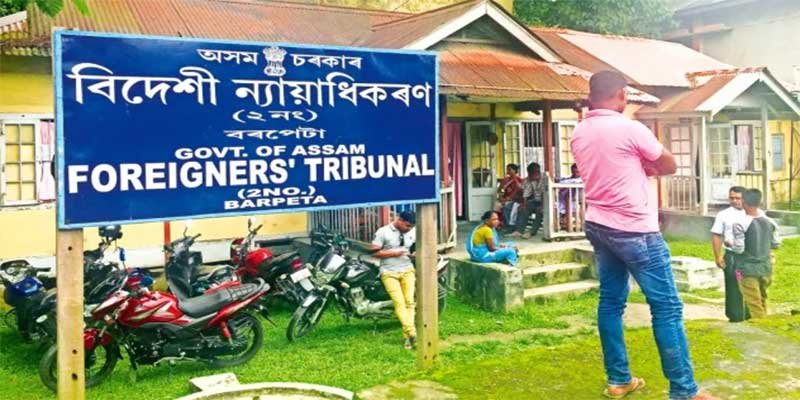Assam Govt to Drop Foreigners Tribunal Cases Against Non-Muslims Entered Before 2015 Under CAA
The CAA, operational since March 2024, offers a fast-track path to citizenship for non-Muslims who entered India before the end of 2014 due to religious persecution.

GUWAHATI- In a significant move, the Assam government has announced it will withdraw all Foreigners Tribunal (FT) cases against non-Muslim migrants who entered India before December 31, 2014, aligning the state’s policy with the provisions of the Citizenship (Amendment) Act (CAA), 2019.
The directive, issued by Assam’s Home and Political Department on July 5, instructs the Assam Border Police to stop referring cases of Hindus, Sikhs, Buddhists, Jains, Parsis, and Christians from Afghanistan, Pakistan, and Bangladesh to Foreigners Tribunals, provided they arrived before the 2014 cut-off date. Instead, these individuals are to be directed to apply for Indian citizenship under the CAA through the designated portal, with applications handled by the Union Government.
Also Read- Fake Doctor Arrested in Silchar for Performing Over 50 Caesarean Sections with Forged Credentials
Assam Chief Minister Himanta Biswa Sarma stated that the policy is intended to protect religious minorities fleeing persecution, emphasizing that such individuals should not be subjected to legal proceedings under the Foreigners Act. “We’re ensuring they are not unnecessarily prosecuted,” he said, while acknowledging the low number of citizenship applications—only eight so far, with two actively pursued.
The CAA, operational since March 2024, offers a fast-track path to citizenship for non-Muslims who entered India before the end of 2014 due to religious persecution. However, critics have condemned the new state policy as discriminatory, alleging it violates the secular principles of the Indian Constitution by applying religious filters to citizenship.
Organizations such as the Social Democratic Party of India (SDPI) and the All Assam Students’ Union (AASU) have strongly opposed the move. They argue it undermines the 1985 Assam Accord, which fixed March 24, 1971, as the deadline for detecting and deporting illegal immigrants, regardless of religion. Indigenous groups warn that relaxing these norms could accelerate demographic changes in Assam.
Meanwhile, the government has also instructed authorities to withdraw pending tribunal cases involving Gorkha and Koch-Rajbongshi communities, widely seen as indigenous groups.
As of last year, 97,714 cases were pending before Assam’s 100 Foreigners Tribunals. The policy change could significantly reduce this backlog—though it only benefits non-Muslims, while Muslims facing similar circumstances continue to face tribunal scrutiny.
Assam’s unique use of Foreigners Tribunals and the National Register of Citizens (NRC)—which excluded 19 lakh people, including over 69,500 Hindus—has made citizenship a polarizing issue in the state. The implementation of the CAA, critics warn, will further entrench religious divisions.
With legal challenges to the CAA still pending in the Supreme Court, the latest decision may further fuel the national debate over identity, citizenship, and secularism in India.









